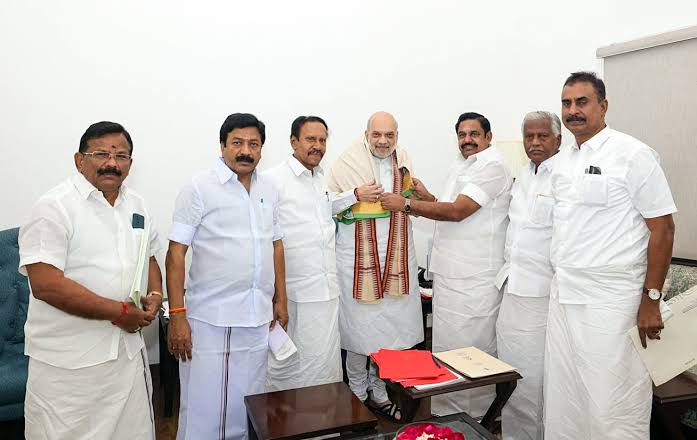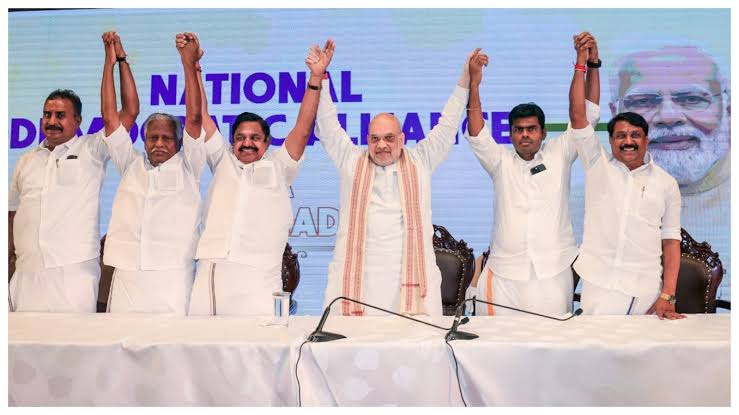The Bharatiya Janata Party (BJP) has set its eyes once again on Tamil Nadu, one of India’s most politically complex and emotionally rich states. As the 2026 elections draw nearer, the BJP has taken a significant step by rekindling its alliance with the All India Anna Dravida Munnetra Kazhagam (AIADMK), a move that could reshape the contours of electoral politics in the region. This realignment, marked by a high-profile event in Chennai where Union Home Minister Amit Shah shared the stage with AIADMK general secretary Edappadi K. Palaniswami and Tamil Nadu BJP president K. Annamalai, speaks volumes about the BJP’s recalibrated ambitions in the southern state.

Tamil Nadu has always been a unique challenge for the BJP. With its deep-rooted Dravidian politics and strong regional identities, the state has not been an easy terrain for national parties to penetrate. Despite its national dominance, the BJP has struggled to find a foothold here. However, the decision to revive the alliance with AIADMK signals a pragmatic shift — an acknowledgment that regional partnerships remain essential to make electoral inroads.
Recent political developments suggest that the BJP is not just experimenting but investing seriously in Tamil Nadu. The change in state leadership, with a focus on local sensitivities and cultural identity, is a reflection of the party’s efforts to resonate with the Tamil electorate. For many voters, political allegiance is closely tied to regional pride, language, and historical context, and any attempt to win their trust must begin with a sincere understanding of these values.
But can this alliance actually translate into electoral success? While past numbers may suggest steep odds, politics is as much about perception and momentum as it is about statistics. The combined strength of BJP’s national machinery and AIADMK’s deep-rooted presence in Tamil Nadu offers a fighting chance, especially if they can present a united, respectful, and locally attuned front.
For supporters and observers alike, there is a human element to this political strategy that shouldn’t be overlooked. Tamil Nadu’s electorate is discerning and emotionally invested in its political culture. People here remember leaders not just for policies but for how they made them feel — heard, respected, and understood. The BJP-AIADMK alliance must recognize this and avoid a top-down campaign model. It needs to show that it values Tamil Nadu not just as a vote bank, but as a vital part of India’s soul.
As 2026 approaches, the political landscape of Tamil Nadu is poised for an intense, possibly transformative contest. Whether the BJP-AIADMK alliance will succeed remains to be seen. But their renewed collaboration has certainly added fresh energy to the political discourse — one that will be closely watched by the rest of the country.




